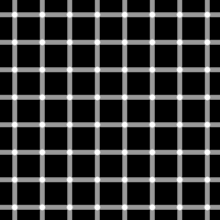دنیای زبان انگلیسی ( بهروزپور )
لغات و اصطلاح .داستان کوتاه . شعر.جوک .ضرب المثل.اشپزی.رمان. نمایشنامه.متن دوزبانهدنیای زبان انگلیسی ( بهروزپور )
لغات و اصطلاح .داستان کوتاه . شعر.جوک .ضرب المثل.اشپزی.رمان. نمایشنامه.متن دوزبانهمشکل و اسان
Easy is to dream every night.
Difficult is to fight for a dream...
خوابیدن در هر شب آسان است
ولی مبارزه با آن مشکل است.
Easy is to show victory.
Difficult is to assume defeat with dignity...
نشان دادن یپروزی آسان است.
قبول کردن شکست مشکل است.
Easy is to admire a full moon.
Difficult to see the other side...
حظ کردن از یک ماه کامل آسان است .
ولی دیدن طرف دیگر آن مشکل است.
Easy is to stumble with a stone.
Difficult is to get up...
زمین خوردن با یک سنگ آسان است .
ولی بلند شدن مشکل است.
...the difference between a baron, viscount, earl, marquess, and
What's the difference between a baron, viscount, earl, marquess, and duke?
A duke is a noble person, historically of highest rank below the King
or Queen, and usually controls a duchy or a Dukedom. Female equivalent
is Duchess either in her own right, or wife of a Duke. Dukes were the
rulers of the provinces and the superiors of the counts in the cities
and later, in the feudal monarchies, the highest-ranking peers of the
king. There were, however, variants of these meanings and there were
even sovereign princes employing ducal titles.
A marquess is a nobleman of hereditary rank. A woman with the rank of
marquess, or the wife of a marquess, is a marchioness. This term comes
from Old French
Marchis "frontier, frontier territory" - also seen in the Germanic word
for 'border' (mark) - which in English became march. They were
originally counts who were granted extra powers because they guarded
border areas.
An Earl (or Jarl) was an Anglo-Saxon title meaning "chieftain" and
referring especially to chieftains set to rule a territory in a king's
stead. English never developed a feminine form of earl; the wife of an
earl is styled countess. In Anglo-Saxon England, earls had authority over their own regions and right of judgement in provincial courts,
as delegated by the king. They collected fines and taxes and in return
received a "third penny", one-third of the money they collected. In
wartime they led the king's armies.
خواندنی
One day an employee sends a letter to his boss asking for an increase in his salary !!!
Dear Bo$$
In thi$ life, we all need $ome thing mo$t de$perately. I think you $hould be under$tanding the need$ of u$.
We are worker$ who have given $o much $upport including $weat and $ervice to your company ......
I am $ure you will gue$$ what I meant and re$pond $oon.
Your$ $incerely,
Hu$am
Physiological illusions
Physiological illusions

Physiological illusions, such as the afterimages following bright lights, or adapting stimuli of excessively longer alternating patterns (contingent perceptual aftereffect), are presumed to be the effects on the eyes or brain of excessive stimulation or interaction with contextual or competing stimuli of a specific type - brightness, colour, position, tile, size, movement, etc. The theory is that a stimulus follows its individual dedicated neural path in the early stages of visual processing, and that intense or repetitive activity in that or interaction with active adjoining channels cause a physiological imbalance that alters perception
The Hermann grid illusion and Mach bands are two illusions that are best explained using a biological approach. Lateral inhibition, where in the receptive field of the retina light and dark receptors compete with one another to become active, has been used to explain why we see bands of increased brightness at the edge of a colour difference when viewing Mach bands. Once a receptor is active it inhibits adjacent receptors. This inhibition creates contrast, highlighting edges. In the Hermann grid illusion the gray spots appear at the intersection because of the inhibitory response which occurs as a result of the increased dark surround.[1] Lateral inhibition has also been used to explain the Hermann grid illusion, but this has been disproved.[citation needed] More recent "empirical" approaches to optical illusions have had some success in explaining optical phenomena with which theories based on lateral inhibition have struggled (e.g. Howe et al. 2005[2]).
حیوانات در اصطلاحات انگلیسی(Animals (۱
"میمون" در اصطلاحات انگلیسی
|
|
1- To monkey around: احمقانه رفتار کردن
2- Monkey business: رفتار بد یا بدون صداقت
3- To make a monkey out of someone: کسی را احمق جلوه دادن
"زنبور" در اصطلاحات انگلیسی
|
|
1- Busy as a bee: به کسی گفته می شود که خیلی سرش شلوغ است و کار زیاد دارد یا مثل زنبور این طرف و آن طرف می رود تا کارها را انجام دهد.
2- The bee's knees: کاری که خوب و با کیفیت عالی انجام شده باشد.
3- To have a bee in your bonnet: وقتی کسی خیلی نگران است و دائما درباره نگرانی اش حرف می زند.
Songs of Innocence and Experience (William Blake
“The Lamb”
Little Lamb who made thee
Dost thou know who made thee
Gave thee life & bid thee feed.
By the stream & o’er the mead;
Gave thee clothing of delight,
Softest clothing wooly bright;
Gave thee such a tender voice,
Making all the vales rejoice!
Little Lamb who made thee
Dost thou know who made thee
Little Lamb I’ll tell thee,
Little Lamb I’ll tell thee!
He is called by thy name,
For he calls himself a Lamb:
He is meek & he is mild,
He became a little child:
I a child & thou a lamb,
We are called by his name.
Little Lamb God bless thee.
Little Lamb God bless thee.
